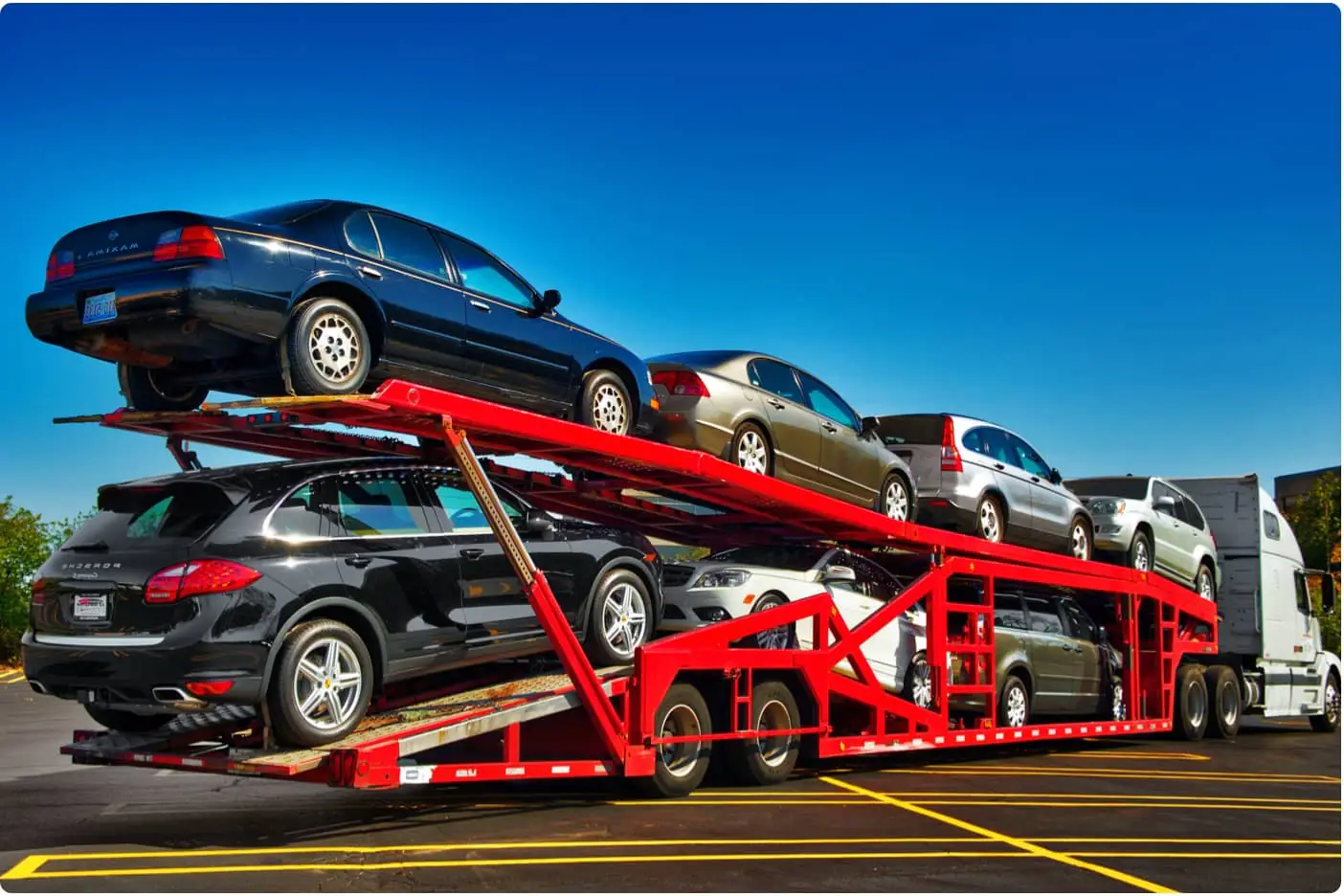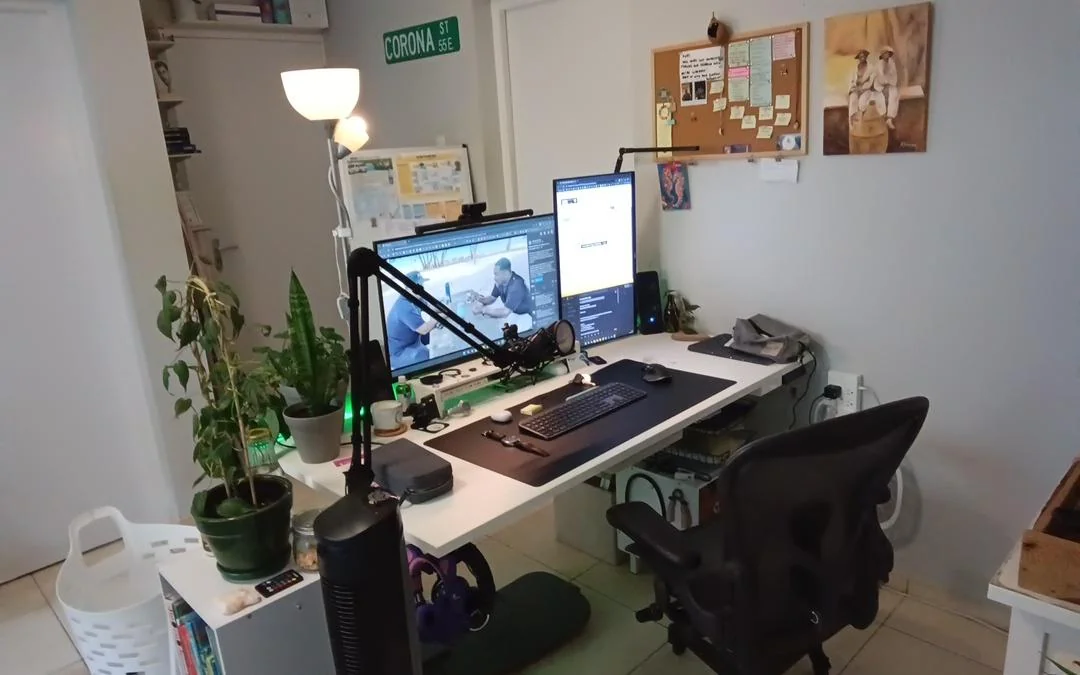5 Dos and Don'ts for Moving Small Loads Across Country
Speak With A Shipping Expert And Save 10%
Call (866) 333-8018
Moving a small load across the country presents unique challenges that many people underestimate. Whether you're relocating with just a few furniture pieces, shipping belongings to a new apartment, or handling a partial household move, avoiding common mistakes can save you time, money, and stress.
Based on decades of experience in cross-country small load moving, here are the essential dos and don'ts that will ensure your small move goes smoothly from coast to coast.
What Qualifies as a Small Load Move?
Before diving into the dos and don'ts, it's important to understand what constitutes a small load move:
- Partial apartment or dorm moves (1-3 rooms of belongings)
- Individual furniture pieces (dining sets, bedroom furniture, single appliances)
- Shipments under 2,000 pounds total weight
- 1-5 pallets of boxed items
- Student moves to and from college
- Temporary relocations where most items stay in storage
The 5 Critical DOs
1. DO Start Planning 6-8 Weeks in Advance
Why This Matters:Small moves require just as much planning as full household relocations, often more. Many people assume that fewer items mean less planning time, but this couldn't be further from the truth.
Action Steps:
- Research specialized small load movers early
- Get multiple quotes and compare services
- Book your preferred dates before they're unavailable
- Plan for potential delays in consolidated shipping
- Create a detailed inventory of items to move
Professional Insight: Small load shipments often wait for consolidated loads, which can extend delivery times. Early booking ensures better scheduling options and priority placement.
2. DO Choose Specialized Small Load Movers
Why This Matters:Traditional full-service movers often have minimum weight requirements or inflated pricing for small loads. Specialized small load movers offer better value and service tailored to your needs.
What to Look For:
- Companies that specialize in partial loads and consolidation
- No minimum weight requirements
- Competitive pricing based on actual space used
- Experience with cross-country small moves
- Positive reviews specifically for small load services
Red Flags to Avoid:
- Quotes significantly below market rates
- Large upfront deposits required
- No physical address or licensing information
- Reluctance to provide written estimates
- Poor BBB ratings or customer reviews
Professional Tip: Companies like Ship Smart specialize in small load moving and understand the unique logistics of consolidating shipments efficiently while maintaining quality service.
3. DO Declutter and Downsize Before Moving
Why This Matters:Cross-country moving costs are primarily based on weight and space. Every unnecessary item you ship increases your costs and complicates logistics.
Strategic Decluttering:
- Apply the one-year rule: If you haven't used it in a year, consider selling or donating
- Do a cost-benefit analysis: Compare shipping costs vs. replacement costs
- Focus on high-value, hard-to-replace items: Ship heirlooms, expensive furniture, and sentimental pieces
- Consider local purchase options: Heavy, low-value items (like basic appliances) might be cheaper to replace
Money-Saving Example: Instead of shipping a $200 microwave for $150, sell it locally and buy a new one at your destination. You'll break even and avoid the hassle.
4. DO Pack and Protect Items Properly
Why This Matters:Small load shipments often get consolidated with other customers' belongings, increasing handling and potential damage risks. Proper packing is your first line of defense.
Essential Packing Materials:
- Heavy-duty moving blankets for furniture
- Bubble wrap for fragile items
- Corner protectors for furniture edges
- Stretch wrap to secure blankets and padding
- Quality packing tape (2" width minimum)
- Labeled plastic bags for hardware and small parts
Professional Packing Techniques:
- Disassemble furniture completely when possible
- Wrap each piece individually with appropriate padding
- Secure loose parts in labeled bags taped to main pieces
- Take photos before packing for reference and insurance purposes
- Use proper lifting techniques to prevent injury during loading
5. DO Get Adequate Insurance Coverage
Why This Matters:Standard carrier liability (usually 60 cents per pound) provides minimal protection for valuable items. A damaged $2,000 dining set would only be covered for about $120 under basic liability.
Insurance Options:
- Full Value Protection: Covers repair or replacement costs
- Declared Value Coverage: Higher coverage limits for specific amounts
- Third-Party Insurance: Often more comprehensive than carrier options
- Homeowner's/Renter's Insurance: May cover items during moves (check your policy)
Coverage Recommendations:
- Document all items with photos and receipts
- Get written estimates for valuable pieces
- Consider additional coverage for antiques or heirlooms
- Understand claim procedures and time limits
The 5 Critical DON'Ts
1. DON'T Assume Small Means Simple
The Mistake:Many people think that moving fewer items automatically means less planning, faster service, and simpler logistics. This assumption leads to poor preparation and unrealistic expectations.
Reality Check:
- Small loads often take longer due to consolidation scheduling
- Route optimization can affect delivery timing
- Special handling requirements don't decrease with load size
- Documentation and insurance needs remain the same
Better Approach:Treat your small load move with the same seriousness and planning as a full household move. The logistics may be simpler, but the attention to detail should be identical.
2. DON'T Choose Movers Based on Price Alone
The Mistake:Selecting the cheapest quote without considering service quality, company reputation, or included services often leads to problems.
Hidden Costs of Cheap Movers:
- Poor packing leading to damage claims
- Unexpected fees and surcharges
- Delays due to unreliable scheduling
- Limited insurance coverage
- Poor customer service and communication
Red Flag Pricing:
- Quotes significantly below other estimates
- Vague or incomplete service descriptions
- No written contracts or estimates
- Requests for large deposits upfront
- No clear breakdown of charges
Smart Selection Criteria:
- Compare total service value, not just price
- Verify licensing and insurance
- Read recent customer reviews
- Check Better Business Bureau ratings
- Ensure clear, written contracts
3. DON'T Rush the Process
The Mistake:Trying to expedite a small load move by skipping preparation steps, choosing the first available mover, or pushing unrealistic timelines.
Consequences of Rushing:
- Limited mover availability leading to higher prices
- Inadequate time for proper packing and protection
- Missed details in contracts and service agreements
- Increased stress and potential for mistakes
- Higher likelihood of damage due to poor preparation
Realistic Timelines:
- Planning phase: 6-8 weeks minimum
- Booking: 4-6 weeks before move date
- Packing: 1-2 weeks depending on load size
- Transit time: 1-3 weeks for cross-country consolidation
- Delivery scheduling: Allow flexibility for consolidated shipments
4. DON'T Overpack Boxes or Containers
The Mistake:Trying to minimize the number of boxes by overpacking them, making them too heavy to lift safely or prone to breaking.
Problems with Overpacking:
- Increased risk of box failure and damage
- Safety hazards during loading and unloading
- Difficulty handling during multiple transfers
- Higher likelihood of injury to movers
- Potential additional charges for overweight items
Proper Packing Guidelines:
- Maximum box weight: 50 pounds for most items
- Heavier items: Use smaller boxes (books, tools, etc.)
- Fragile items: Extra padding, lighter loads
- Furniture: Proper disassembly and individual wrapping
- Hardware: Separate, labeled storage for all small parts
Professional Standard: Experienced movers follow the "lift test" – if you can't comfortably lift a box, it's too heavy for safe transport.
5. DON'T Neglect Documentation and Communication
The Mistake:Failing to properly document items, maintain communication with movers, or understand contract terms and conditions.
Documentation Failures:
- No photo documentation of pre-existing damage
- Missing inventory lists or descriptions
- Unclear contract terms and conditions
- No proof of item values for insurance
- Poor communication about special handling needs
Communication Breakdowns:
- Not confirming pickup and delivery details
- Failing to provide accurate contact information
- Not updating movers about access issues or changes
- Missing delivery appointment confirmations
- Not understanding claim procedures
Best Practices:
- Take detailed photos of all items before packing
- Maintain written records of all communications
- Confirm all details in writing
- Provide clear, accurate delivery information
- Stay accessible during transit for updates
Cost-Saving Strategies for Small Load Moves
Smart Scheduling
Off-Peak Timing:
- Avoid summer months (peak moving season)
- Schedule mid-week pickups and deliveries
- Be flexible with delivery windows
- Consider off-season rates (November-March)
Consolidation Benefits:
- Share truck space with other shipments
- Reduce per-item costs through efficiency
- Access to more route options
- Professional handling and tracking
Service Optimization
Partial Service Options:
- Pack yourself, let professionals handle loading
- Use professional packing for fragile items only
- Choose dock-to-dock vs. full-service delivery
- Consider consolidated vs. dedicated transportation
Volume Efficiency:
- Combine multiple small shipments when possible
- Coordinate timing with other household members
- Group similar items for better packing efficiency
- Optimize space usage through proper planning
Special Considerations for Cross-Country Small Loads
Regional Differences
Climate Considerations:
- Protect items from humidity changes
- Account for temperature extremes during transit
- Use appropriate materials for seasonal moves
- Plan for weather-related delays
State Regulations:
- Research destination state requirements
- Understand interstate moving regulations
- Verify licensing for cross-state moves
- Know your rights and responsibilities
Technology and Tracking
Modern Solutions:
- Real-time GPS tracking for peace of mind
- Mobile apps for communication and updates
- Digital documentation and photo sharing
- Online claims processing when needed
Stay Connected:
- Maintain current contact information
- Use multiple communication channels
- Set up delivery notifications
- Plan for potential schedule changes
When to Consider Professional Services
High-Value Items
Antiques and Heirlooms:
- Professional packing and crating services
- Climate-controlled transportation options
- Specialized handling and insurance
- Expert knowledge of fragile item transport
Valuable Furniture:
- Custom protection methods
- White-glove delivery services
- Assembly and placement at destination
- Comprehensive damage protection
Complex Logistics
Multi-Stop Moves:
- Coordination between multiple locations
- Timing and scheduling expertise
- Route optimization for efficiency
- Single point of contact for all services
Time-Sensitive Deliveries:
- Express services for urgent needs
- Guaranteed delivery windows
- Priority handling and transport
- Direct communication and updates
Conclusion: Success Through Preparation
Moving small loads across the country successfully requires the same attention to detail and planning as larger moves, just with different logistics. The key to a smooth small load move lies in:
Proper Planning: Start early and research your options thoroughly.
Right Partnership: Choose experienced small load movers who understand consolidation logistics.
Quality Preparation: Invest in proper packing materials and techniques.
Realistic Expectations: Understand timing and process limitations.
Comprehensive Protection: Secure adequate insurance coverage for your belongings.
At Ship Smart, we've been helping customers navigate cross-country small load moves for over 30 years. Our specialized small load moving services are designed specifically for partial moves, with expert packing, consolidated shipping, and comprehensive tracking throughout the process.
Students planning cross-country moves can benefit from our tailored college moving services, which understand the unique needs and timing requirements of academic relocations.
Ready to move your small load across country? Contact Ship Smart today for expert guidance and a personalized quote. Our experienced team will help you avoid common mistakes while ensuring your belongings arrive safely and on time at their cross-country destination.
These dos and don'ts are based on current industry best practices and real-world experience in cross-country small load moving. Always consult with professional movers for specific guidance based on your unique situation and requirements.
Our Latest Moving Tips
View Full BlogTrustpilot Reviews
Aptos, CA 95003 US
Sat: 9:00 am - 3:00 pm
*Pacific Time


